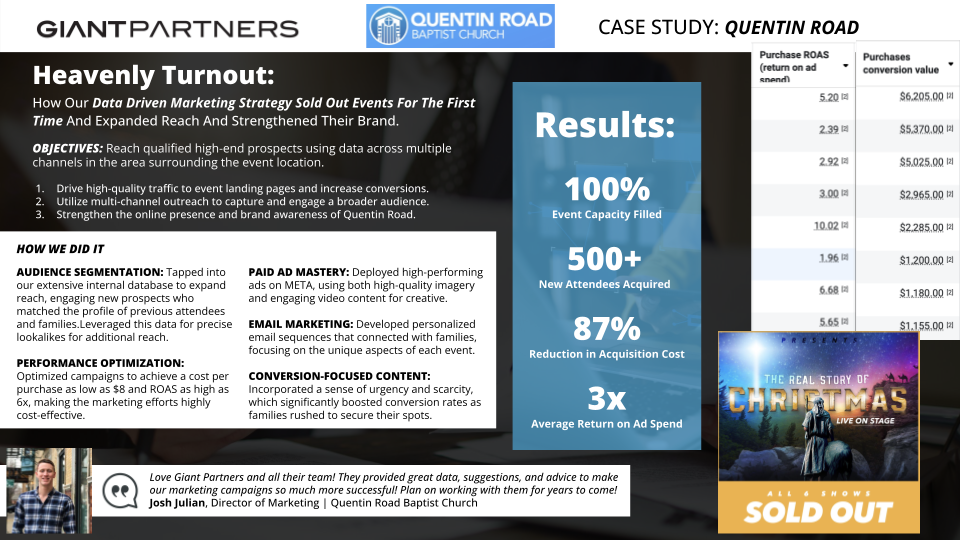![]() By Vince Barile | Ministry Marketing | Published Sept 10, 2024 | 5 Minute Read
By Vince Barile | Ministry Marketing | Published Sept 10, 2024 | 5 Minute Read

Introduction
Christian ministries have increasingly embraced digital marketing technology to effectively spread the gospel and advance their mission. This article highlights the top five digital marketing tools that we believe every Christian ministry should take steps to implement.
Watch video for more insights:

Top 5 Digital Tools for Ministry Marketing:
1. Social Media Platforms
Ministries use social media platforms like Facebook, Instagram, Twitter, and TikTok to reach wide and diverse audiences. Post daily scriptures, inspirational content, videos of sermons, and event highlights (for free). Live streaming on platforms like YouTube and Facebook Live allows ministries to reach both local and global audiences in real time, providing accessibility to services, worship, and teaching events.
ProTip: When posting and advertising on social media marketing platforms make it a point to lead with the scriptures and follow up with prophetic truth for the audience.

2. Email Outreach
Email newsletters and email outreach are effective tools for ministries to grow community involvement by providing updates, devotionals, event information, and spiritual encouragement. Personalization and segmentation allow ministries to tailor content to specific groups, such as new believers and individuals that have a heart of giving.
ProTip: Adapt your weekly email communications to encourage unbelievers in your community and lead them towards repentance.

3. SEO & Content Marketing
Ministries often create faith-based content like blog posts, podcasts, and videos that target specific keywords through search engine optimization (SEO). This ensures messages rank highly on search engines (how your ministry get’s found online), enabling people to find content related to their faith questions and spiritual needs. Producing high-quality articles, devotionals, or testimonies helps drive organic traffic to your websites.
ProTip: Have a plan for repurpose every great thing your ministry accomplishes into searchable thought leadership marketing content on your website.

4. Mobile Apps and Podcasts
Many ministries develop mobile apps and offer podcasts to facilitate spiritual growth and ensure effective communication on the go. Apps can feature Bible study tools, sermon archives, prayer requests, event schedules, and registration instructions. Podcasts allow ministries to reach individuals during their daily routines, whether they are commuting, exercising, or relaxing at home.
ProTip: Use your phone to make raw and real recordings of bible teaching. Hand off this content to capable members of your team to edit, post-produce, and publish across digital marketing channels.

5. Paid Advertising (PPC) & Retargeting
Ministries use digital advertising platforms like Google Ads, Facebook Ads, and Instagram Ads to promote seasonal events, weekly services, and special campaigns. Web search and display ads target individuals based on their interests, demographics, and past behaviors, allowing ministries to engage with those who might be interested in the Christian faith. Elegant retargeting reminds website visitors of upcoming events and important messages.
ProTip: Implement paid social media advertising and web search advertising campaigns to exponentially expand the reach of your content in your community.

Conclusion
Ministry marketing digital tools leverage modern communication technologies to spread the gospel, engage audiences, and fulfill mission.
Please book a meeting a meeting below if you would like to discuss digital marketing best practices for your ministry.
About Giant Partners
24 years. 6000 customers. Giant Partners is America’s #1 data driven marketing agency. We accelerate campaign performance with custom audience data, brand management, website development, CRM integration, email marketing, and omni-channel advertising.


 Vince Barile
Vince Barile













